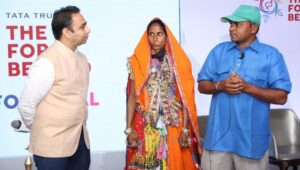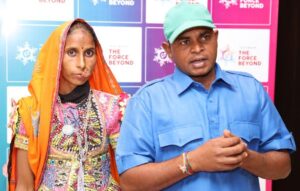Menstrual hygiene management programme initiated by TATA TRUSTS has helped a large section of people to break free from yesterday’s taboos. Today, a huge number of women in rural villages have adopted hygienic practices recommended during the MHM sessions and debunked menstrual myths and taboos.


Menstruation has always been stigmatised across India and is considered a taboo. It has been clouded in misconceptions that have perpetuated over generations. Girl after girl has found their period to be abnormal, scary and impure, making them feel shameful, undeserving and dirty. Girls are still discreet about periods, fighting a lonely battle, within themselves because there is no one to talk to. Especially in Indian villages, where the girl is handed a laundry list of “things not to do from now on”.
Menstrual health management:
In this scenario, it was extremely difficult to get the women to step out of their houses, leave alone talk about periods. The Tata Trusts, on understanding the importance of teaching women safe practices of menstruation that directly impacts their health and well-being, took an imperative step towards curtailing myths around women hygiene and care through Menstrual Health Management (MHM). Women discuss freely only amongst themselves, therefore, to reach every woman, 5 Community Resource Persons (CRPs), under a Cluster Anchor were trained. These CRPs created their multiple groups of adolescent girls and women, and formed a community of 15-20 participants.
These communities act as close-knit extended families to women, explaining to them the importance of menstruation and breaking the shackles of the existing myths and taboos. In 2019, as part of a mass awareness and engagement campaign, a menstruation mela was conducted, wherein women consulted the gynaecologist, got information about different absorbents while actively engaging in fun activities like bracelet making, etc., all geared towards driving home the message that menstruation is not taboo and that safe practices lead to healthy living.
Ms. Kajal Vala, a CRP, conducted her first training and helped women in Kadodara village in Gujarat to realise the importance of menstrual management. She acted as a catalyst of change, encouraging many other women to come forward and support the initiative. One of the members, Harshita, gauged the sensitivity of the subject during her tuition classes. Recollecting a few incidents, where girls were behaving in an odd manner and not attending classes, Harshita realised that she could contribute by sharing her knowledge with many young girls who come for tuition with her, and she too became a part of the initiative.
Husband or male member of the house can help women:


When Nolaki bai attended the MHM sessions she got to know that she has a problem related to periods but never cared about it due to lack of awareness and shame. She hesitated to share the issue with her husband, somehow she shared the issue with her husband Mohanlal after attending the session and they consulted with doctor.
Mohanlal shows the interest to know more about menstruation. And they both attend the couple counselling sessions. Now they think it’s not the subject of shame or stigma. Mohanlal is also helping his wife during periods and he believes that a husband or male member of the house can help women, provide products, medical care and allow her in kitchen, temple. The couple is also shared that we can do anything during periods with hygienic practice and it is important to talk on this subject. Nolaki bai motivates the adolescent girls of her village to keep hygiene and take care of themselves during periods.
Today, about 70% of the women in the village have adopted hygienic practices recommended during the MHM sessions and most women have also understood the reason behind the myths and taboos. They are able to go to work without thinking twice about any infection or any leakage. The Tata Water Mission promotes safe and effective menstrual hygiene management in around 900 villages, covering a stakeholder base of over 200,000 women and 45,000 men of all ages over a period of three years. Over time, women have started accepting menstruation as ‘normal’. Today, a huge number of women in rural villages have adopted hygienic practices recommended during the MHM sessions and debunked menstrual myths and taboos.











